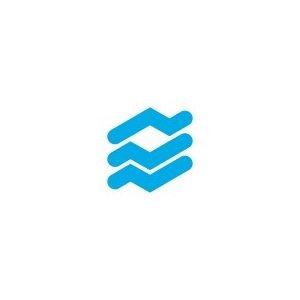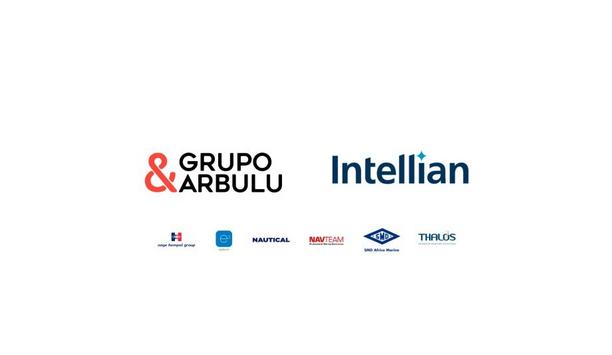The World Port Climate Action Program (WPCAP) will be extended with a new focus on shore power, new fuels and green shipping corridors.
This was agreed by the CEOs (Chief Executive Officers) and leaders of 12 leading ports at a meeting in Rotterdam, Netherlands, on the occasion of the first five years of the program. WPCAP members praised the program for its important contribution to the adoption of sustainability standards in the shipping industry.
World Port Climate Action Program (WPCAP)
“The world has changed drastically in the past five years and climate is at the top of the international agenda today, including in the shipping industry," said Allard Castelein, the Chief Executive Officer (CEO) of the Port of Rotterdam.
Allard Castelein adds, “This is in part due to programs like WPCAP, and we still have an important role to play. The industry still needs leadership by ports and we need to prove now that we are part of the solution and can create momentum for real change.”
Faster adoption of shore power
WPCAP has significantly contributed to the faster adoption of shore power at ports
In the past years, WPCAP has significantly contributed to the faster adoption of shore power at ports, helping to reduce emissions of CO2 and pollutants, while ships are at berth.
WPCAP members developed a global overview of existing facilities and best practice guidelines on their technical, operational and economic implementation and ports in Northwest Europe agreed on the faster adoption of shore power in a Memorandum of Understanding (MoU).
Positive impact and benefits of shore power
Jarl Schoemaker: “We saw a shift from a situation where ports developed a few projects to large scale investment programs – the WPCAP ports present here in Rotterdam are planning more than 160 connection points with a total investment plan of more than 500 million euros. But we’re not there yet: various global ports are still lagging in this area, even though studies show that shore power will have a tremendously positive impact, both short term and in the long run.”
The CEOs discussed the benefits of shore power, including improved air quality and a better working environment for shipping crews. They also exchanged views on stimulating its further adoption, noting that terminals and shipping lines also have an important role to play in this.
A recent study from CE Delft for the WPCAP working group shows that shore power will be part of the long-term maritime fuel mix and especially when ships will have to shift to expensive fossil free fuels. The working group is bringing this message to the maritime shipping industry and continues advocating its global implementation.
Setting the standard for cleaner fuels
The ports have worked with the IAPH Clean Marine Fuels working group to create a Port Readiness Framework
The second focus area for WPCAP in the coming years is to facilitate the bunkering and adoption of cleaner fuels. The ports have worked with the IAPH Clean Marine Fuels working group to create a Port Readiness Framework, a self-assessment and communications tool that allows various stakeholders to understand the different levels of research, development and deployment of new fuels at ports around the world.
“Given the urgency of the climate crisis and shipping’s commitments to reducing emissions in line with international regulations, we must take action now. It took almost nine years shipping to adopt LNG as a marine fuel. We cannot wait that long for the deployment of ammonia, methanol, hydrogen and other clean fuels,” said Namrata Nadkarni, the Chair of the Working Group on Sustainable Marine Fuels and Founder of maritime consultancy - Intent Communications.
Port Readiness Level
Namrata Nadkarni adds, “Our Port Readiness Level is an ideal way for ports to assess their ability to host vessel calls or bunker individual fuels, communicate this with stakeholders and identify areas where more resources are needed to meet their alternative fuel and technology ambitions.”
The tool is expected to be ready for voluntary use by ports towards the end of the year.
Green Corridors to play a key role in the transition
Where the fuel readiness framework will set the standard for the bunkering of new fuels, green corridor initiatives are seen as key to facilitate the deployment of fuels in practice, particularly on longer international shipping routes.
“There has been a lot of talk about the need to shift to new fuels in the industry and multiple green corridor initiatives have been announced to address this," says Heather Tomley, the Managing Director of Planning and Environmental Affairs for the Port of Long Beach, California.
WPCAP member ports - part of five green corridor initiatives
WPCAP member ports are already part of five green corridor initiatives, spanning routes around the globe
Heather Tomley adds, “Now it is time to put this into action and work together as ports to bring fuel suppliers and shippers on board, so that we see the first sustainable vessels on these international routes within the next few years.”
WPCAP member ports are already part of five green corridor initiatives, spanning routes around the globe from Singapore and Shanghai to LA, Vancouver and Rotterdam, and WPCAP members agreed to set an example and enable the deployment of more low- and zero carbon vessels along these routes in the coming years.
The need for regional leadership and cooperation
The CEOs called on regional coalitions of the willing to set standards and lead the way for the IMO and the international shipping industry to put in place regulation that will allow the sustainable development of the industry in a level playing field.
The need for a just transition was also emphasized in the discussion, noting the southern hemisphere should also benefit in particular from opportunities in the development of renewable energy sources and fuels. Cooperation between global ports, IAPH and other front runners will play a key role in this.
About WPCAP
WPCAP is a cooperation of leading international ports which exchange best practices and act as front runners in reducing emissions from the shipping industry. Members are the ports of Antwerp – Bruges, Barcelona, Gothenburg, Hamburg, HAROPA PORT (Le Havre – Rouen – Paris), Long Beach, Los Angeles, New York / New Jersey, Rotterdam, Valencia, Vancouver and Yokohama.














